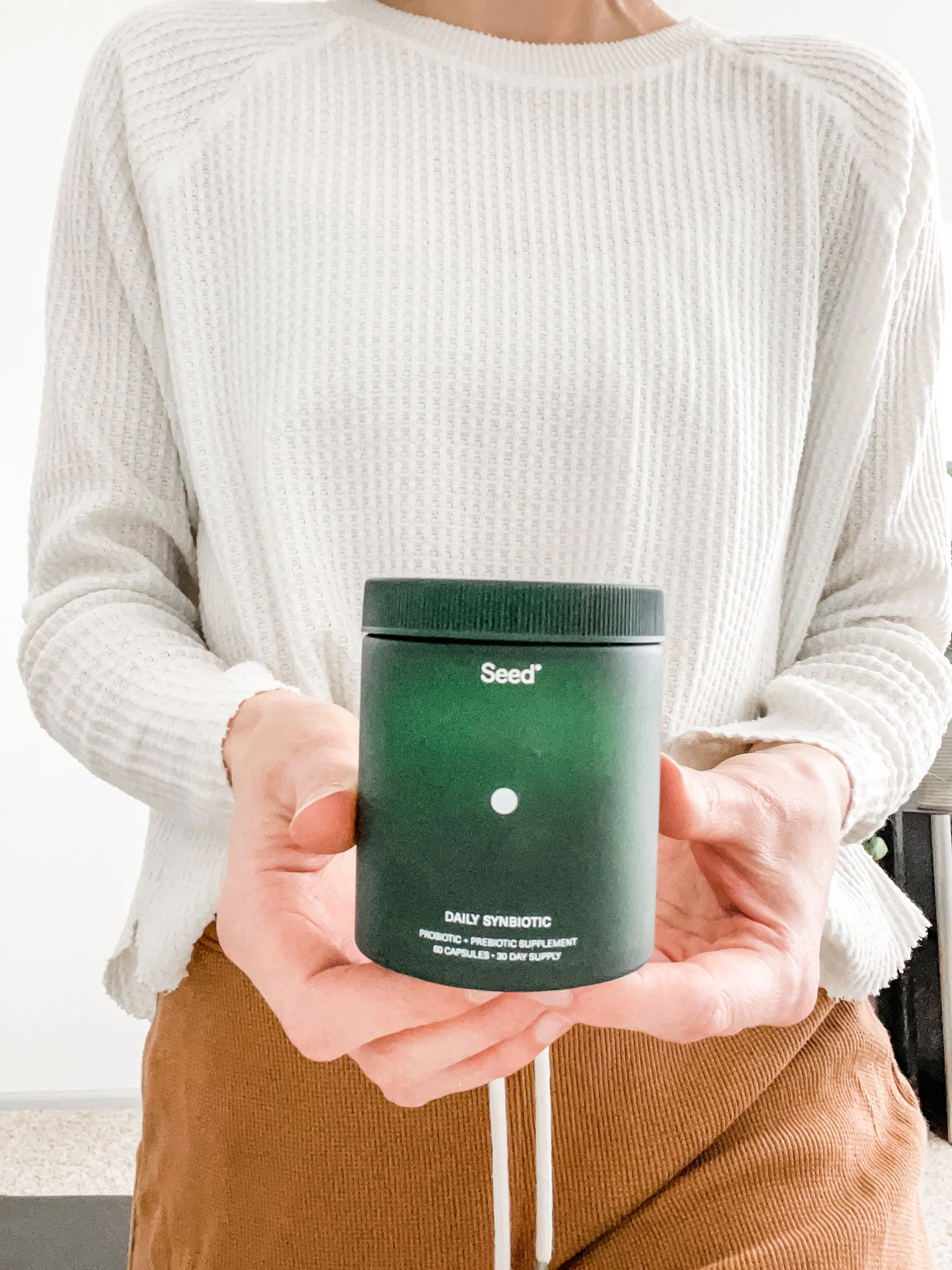Ways Stress Affects Your Gut Health & Tips to Improve It
An upset gut isn’t all in your head… but some of it is!
Stress can affect your entire body! Every sytem in your body, from your cardiovasular system to your multiple nervous systems, can feel the effects of the stress in your life. Our stress hormones — adrenaline and cortisol — are good for us in small doses when needed (think running away from something dangerous), when constantly being pumped through the body from longer term stress, your mental and physical health are compromised — and this includes causing issues in the gut!
Your symptoms can hit a wide range of problem depending on the length of time you remain stressed.
Short term stress (think mid-terms, busy season at work, or a big life event like moving) can cause more mild problems such as slower digestion and a lower appetite.
Long term stress (much more chronically stressed) can cause more notciable and intrusive concerns such as upset stomach, constiapation, diarrhea, or more full blown GI disorders such as Irritable Bowel.
No matter the stressor, or how long you’ve been in a stressed out state, there are a few things to know about what that stress is doing to your body — specifically your gut! Here are a few of the major physical concerns that stress can bring to your gut.
4 Ways Stress Affects Your Gut Health
Motility Changes
When your brain is telling your body that you are in a state of stress, it does this amazing thing and tries to keep you alive. Stress hormones trigger the “fight or flight” response in the body, and when your body thinks it’s a life or death situation — digestion is simply not a priority, so energy, blood, and function that typically would reach your gut, just aren’t happening! This can cause a slow down in overal motility, or the rate food is moving through your intestinal tract. This can cause a number of symptoms like gas, pain, general discomfort, and bloating. Gas production in the gut, the root to all of those problems, is altered when food isn’t moving as quickly as usual. This is because the rate of nutrient absorption is disrupted which causes an increase in internal gas production.
Serotonin Production
Your gut has hundreds of millions of neurons (called the enteric nervous system) that are constantly communicating with the brain, but when you’re constantly stressed out, this connection is affected. Feelings of pain or bloating are more easily felt when stressed. The gut also produces the majority of the serotonin, or the “happy hormone,” in the body. If the health of your GI tract is out of whack, then your serontonin levels are likely off as well which can cause changes in your day-to-day mood, anxiety, and depressed feelings.
Microbiome Changes
Stress can alter your microbiome. When changes in your gut bacteria happen, this disturbs that gut-brain connection and not only affects your emotions, like mentioned earlier, but also your ability to think clearly. Brain fog, a decreased ability to focus, decreased creativity are all symptoms of a broken connection between your gut and your brain, all spurred on by stress.
Inflammation
Changes in the bacteria profile in your gut, aka those micorbiome changes, can cause increased inflammation in your intestinal tract as well. This can cause a number of issues including a compromised intestinal barrier which allows more bacteria into the body. This can cause increased inflammation throughout the body requiring the constant need for “action” by the body to fight off the bacteria, leading to more chronic symptoms. Anxiety and depression has also been shown to increase related to stress’ impact on the gut. The enteric nervous system signals the central nervous system when irritated or inflammed, causing changes in mood.
Tips to Reduce Gut Issues When You’re Stressed
While time, stress management, and consistency with habits are the best ways to get a better feeling gut when stressed out — here are five additions you can make to your day if your gut is being affected by your stress.
Movement
Even a few minutes of streching can be helpful! Try some yoga poses that bring movement to your belly.
Probiotics
Maintaining a health gut microbiome can be helpful in reduce symptoms and overall gut health. My go to pick is Seed. They provide a daily synbiotic that has both probiotic and prebiotic components. Try it out and save a little money with code: mallorychoate.
Eating Consistent Meals
Waiting long period between meals (think 6+ hours) can cause added stress on the digestive process. Especially when the gut is a little out of whack, keeping a consistent schedule with meals can help easy symptoms from feeling worse.
Hydrate
Drinking enough water throughout the day will ensure things keep moving as they should!
Calm Your Mind
Practicing mindfullness, building a small meditation practice, and other stress management habits can do wonders in those moments of high stress.
If you are experiencing severe symptoms, such as bleeding, sudden dramatic changes in motility, unintentional weight loss, or sudden dramatic pain — seek medical advice from your provider.
xx,
mallory
Need more support?
Try these other articles that focus on stress and anxiety amnagement!
How to Natually Reduce Anxiety
9 Ways to Support Your Overall Health From Home
If you are struggling to practice balanced eating and wellness habits due to stress, feeling burnt out, or you’re simply too busy — sign up HERE to hear more about my nutrition coaching!


